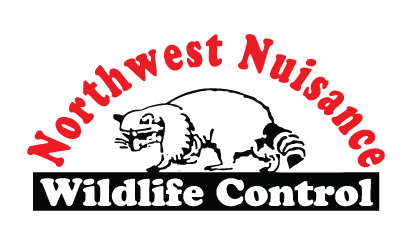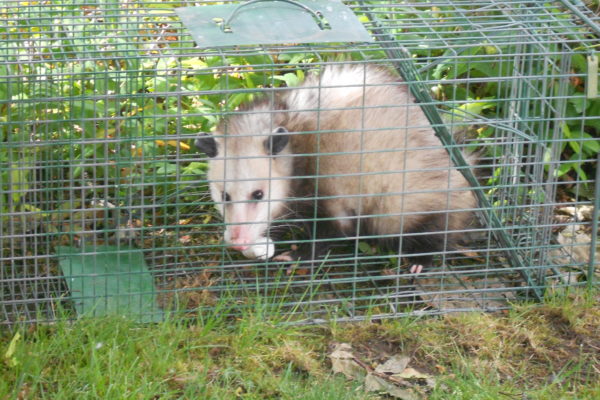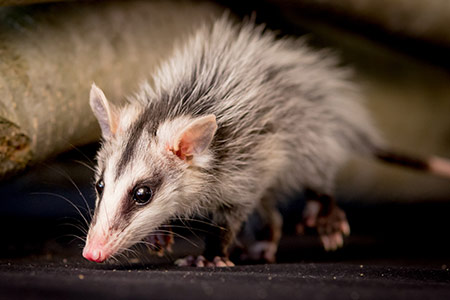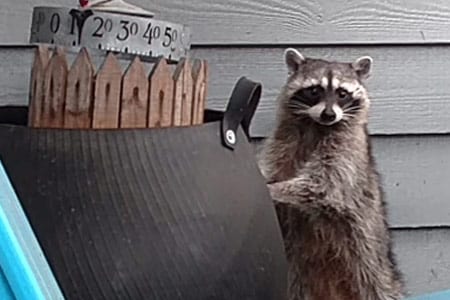At NW Nuisance Wildlife Control, we take pride in our comprehensive approach to possum removal. Initially, our team conducts a thorough inspection of your property to accurately identify and locate the possum issue. We consider all factors, such as entry points, feeding habits, and possum species, to tailor an effective removal strategy. Our experts then utilize humane, state-of-the-art trapping techniques that ensure the safe capture and removal of possums. Following their removal, we implement preventative measures to deter future invasions, including sealing off access points and providing advice on property maintenance. We also offer clean-up services to manage the aftermath of a possum invasion, which may involve contamination clean-up, deodorization, and damage repair. Trust NW Nuisance and Wildlife to handle your possum problems with efficiency, professionalism, and adherence to humane wildlife treatment protocols.
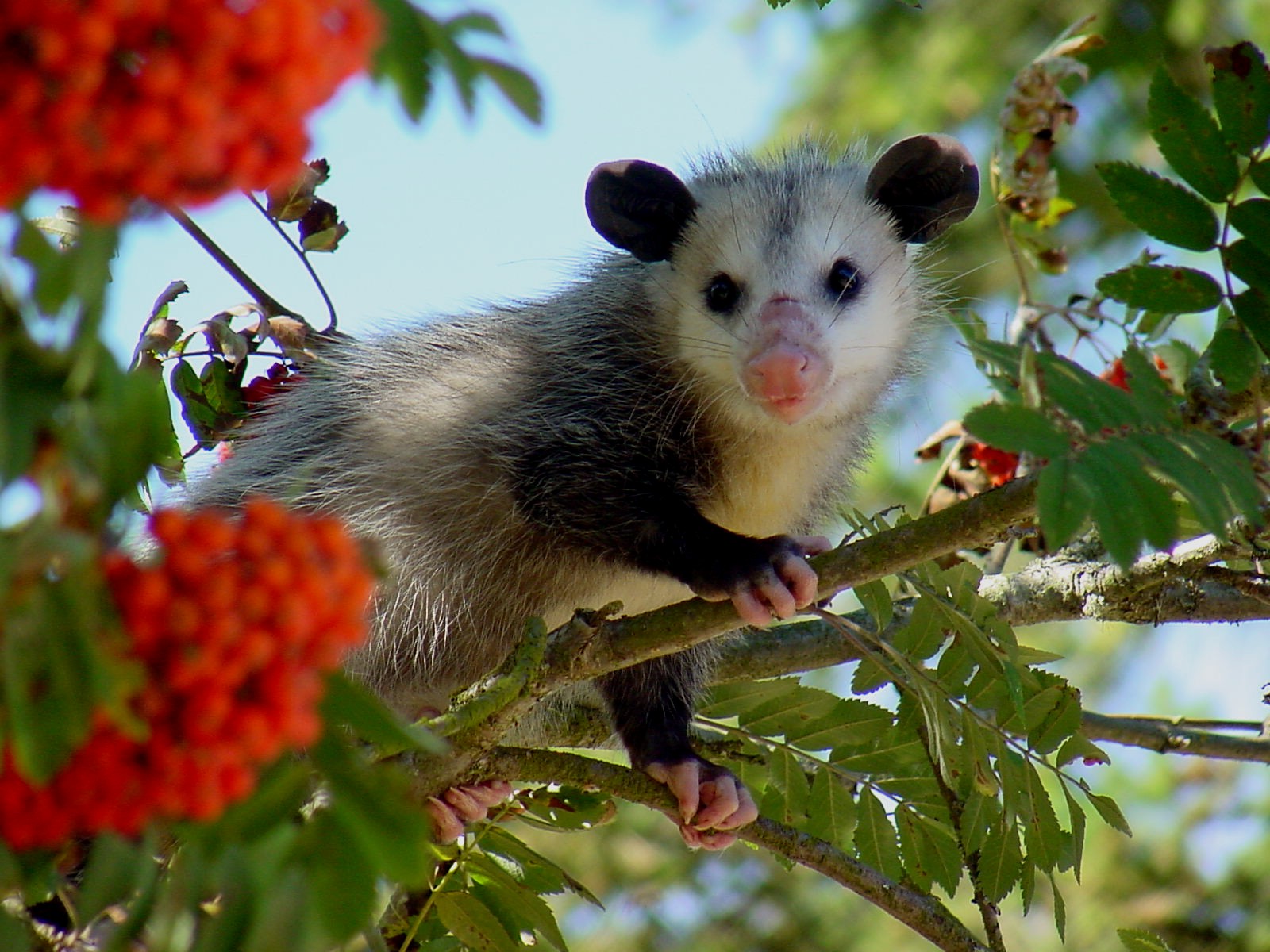
Opossums, the sole marsupials that inhabit North America, are distinctive creatures that carry their younglings in a pouch, reminiscent of kangaroos. Typically, their body length ranges between 2 to 3 feet, giving them the appearance of an oversized rat. Despite their intimidating size, they are not picky eaters; their diet ranges widely from plant matter to insects, and even extends to carrion, thus playing a crucial role in maintaining the ecological balance by consuming dead animals. Opossums have adapted remarkably to urban environments, demonstrating their resilience and versatility. However, given their largely nocturnal habits, they are seldom spotted by humans during the day. It’s important to remember that though they might not be seen often, their presence can still cause significant disruption and damage if they choose to nest in residential areas or commercial properties.
While it’s true that opossums are generally harmless and non-aggressive creatures, conflict can arise when they choose to nest in less than ideal locations, such as attics or crawl spaces within human residences. The instinctive habit of opossums ‘playing possum’, or feigning death as a defensive mechanism, is well-known. However, it’s their tendency to wander into homes through open doors or pet doors that often results in unintentional cohabitation. This intrusion, while usually unplanned on the opossum’s part, can lead to significant disturbances. The presence of these creatures can cause discomfort, distress, and in some cases, property damage. Understanding these potential issues is the first step towards effective, humane, and professional opossum removal.
Q: How can I tell if I have a possum problem?
A: To determine if you have a possum problem, stay alert to certain signals: nocturnal noises such as scratching or hissing in your roof or walls, large, clustered droppings, visible damage like gnaw marks and overturned trash cans, and unpleasant odors in your attic or crawl spaces, which could be from droppings, urine, or a deceased possum. If you notice any of these signs, consider it a prompt to contact a professional wildlife removal service like NW Nuisance Wildlife Control. Managing wildlife should be left to the experts for safety and to ensure humane treatment of the animals.
Q: How do possums get into my attic?
A: Possums primarily gain access to attics by exploiting weak points in a building’s architecture such as loose or damaged vents, gaps in roofing, or uncapped chimneys. They are skilled climbers and can easily scale trees and fences to reach rooftops. Additionally, overhanging branches near your home may provide a convenient pathway for these nocturnal animals. Once on the roof, they can probe for entry points, and their flexible bodies allow them to squeeze through surprisingly small spaces. Regular property maintenance and prevention strategies, like trimming overhanging tree branches and sealing potential entry points, can help keep possums from invading your attic.
Q: What are the dangers of possums?
A: While possums are generally non-aggressive creatures, they can pose several risks if they inhabit human residences. One of the most significant concerns is disease transmission. Possums are known carriers of various diseases such as leptospirosis, tuberculosis, and tularemia, which could potentially affect humans and pets. They can also host parasites like fleas, ticks, and mites, which can infest your home and trigger allergic reactions or transmit other diseases. Additionally, possums may cause structural damage to your property by gnawing on wood, wires, and insulation in search of nesting materials or access points. Their droppings and urine not only produce foul odors but can also contribute to poor air quality in your home. Lastly, possums rummaging through trash cans can lead to unsanitary conditions. It’s crucial to address any possum problem promptly and professionally to minimize these risks.
Q: How do I keep possums away?
A: Keeping possums away requires a combination of proactive measures and preventative maintenance. Firstly, secure your trash cans with tight-fitting lids or consider using animal-proof trash containers to dissuade possums from foraging. Avoid leaving pet food outdoors, as it can attract possums and other wildlife. Secondly, maintain your yard by trimming overhanging branches and removing piles of leaves or wood that could serve as potential hiding spots. Thirdly, illuminate dark areas around your property with motion-activated lights, as possums are nocturnal and generally avoid well-lit spaces. Lastly, regularly inspect your home for potential entry points such as loose vents or gaps in your roof, and seal them promptly. If possum activity continues, consider consulting a professional wildlife removal service for an assessment and targeted prevention plan.
Q: We have something trapped in our attic/stove vent/fireplace. Can you get it out?
A: More than likely, yes. We commonly remove birds, rats, squirrels, raccoons and other animals from attics, crawlspaces, stove vents, fireplaces and other locations in homes, garages and sheds.
Q: Do you remove dead animals from walls, attics, etc?
A: Yes. We can usually find and remove dead animals from inside structures. Please call for price quote.
Q: Can you pick up a dead animal from my yard or inside the house?
A: Yes. We offer dead animal removal and disposal services. Please call for price quote.
Q: Do you have anything to get rid of the smell from dead animals?
A: Yes. Please call us regarding the specifics of your odor removal needs.
Q: What is a “Wildlife Control Operator” or “WCO”?
A: A Wildlife Control Operator (or “WCO”) has a license from the Department of Fish and Wildlife that allows them trap, capture, and remove unclassified wildlife or small game from private property.
Q: What are your fees?
A: Service fees vary greatly depending on the task at hand. Please call us to receive a quote over the phone. If the situation requires us to visit the site before offering a quote, we will tell you this during the initial call
Q: Do you trap and remove moles?
A: No, Initiative 713 banned the use of mole traps and our code of ethics prevents us from partaking in illegal activities. Anyone currently trapping moles is breaking the law.
Q: What do you do with the animals that you catch?
A: All nuisance wildlife control operators in the state of Washington are required by law to euthanize the animals caught on private property. Nuisance wildlife cannot be transported and relocated/released.
Q: Do you offer consultation services?
A: Yes. Please call us and we will gladly discuss the situation at hand.
Q: Do you offer consultation services?
A: Yes. Please call us and we will gladly discuss the situation at hand.
Q: Are you licensed by the state?
A: Yes. We are licensed by the State of Washington and by the Washington Department of Fish and Wildlife. We are also bonded and insured.
Q: Do you also control ants, spiders, scorpions, bugs and termites?
A: Yes, please call the pest control division of our company, Willard’s Pest Control at (425) 820-1980.
Q: Do you control problem birds?
A: Yes, please call our “sister company”, Bird Busters
About Us
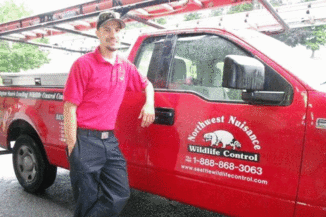
NNWC, established in 1985 is one of the oldest and most trusted wildlife removal companies serving the PNW. We specialize in live trapping, animal control, exclusion and clean up.
We are licensed by the Washington Department of Fish and Wildlife to manage a variety of wildlife conflicts that include: raccoons, squirrels, opossums, beavers, nutria, river otters, mountain beavers, bats, skunks, bobcats and coyotes. We specialize in live animal removal. NNWC serves both residential and commercial customers offering solutions tailored to meet your specific nuisance wildlife conflict needs.
Our trappers have Bachelor of Arts degrees from the University of Idaho in Wildlife Resources and University of Southern California in Environmental Science. Collectively we have over 50 year’s wildlife management experience. Whatever the wildlife conflict we have the experience, knowledge and skill to humanely and professionally solve your problem.
Call us at 425 820-7476 to talk about the possum removal process or you can email us at NNWC1985@willardspestcontrol.com
Don’t let a neglected crawlspace or attic cause problems for your home!
Our team provides expert crawlspace cleanouts, insulation removal, and odor control to keep your space safe, dry, and pest-free.
